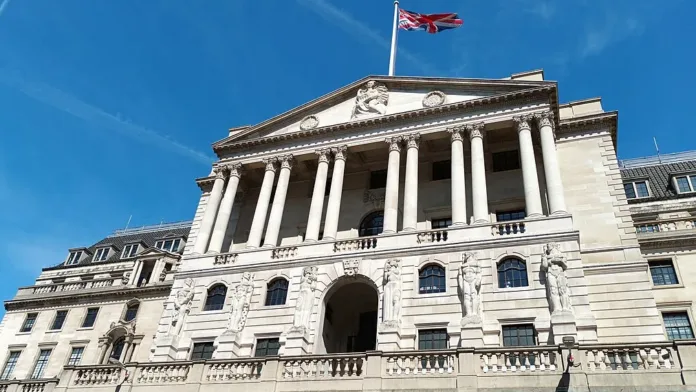BoE holds rates at 4% and slows bond sell-off amid inflation fears and fragile gilt markets
The Bank of England has slammed the brakes on its year-long cycle of interest rate cuts, leaving borrowing costs frozen at 4% and announcing a sharp slowdown in its bond sell-off scheme in a move aimed at soothing jittery financial markets.
The central bank’s nine-member Monetary Policy Committee (MPC) voted 7–2 to pause, after five consecutive cuts since last summer, including one just a month ago. The decision followed warnings that inflation—still running at 3.8% in August—remains stubbornly high, nearly double the Bank’s 2% target.
Governor Andrew Bailey warned that the fight against inflation is far from over. “Although we expect inflation to return to our 2% target, we’re not out of the woods yet, so any future cuts will need to be made gradually and carefully,” he said.
The choice to stand pat underscored the Bank’s delicate balancing act: dampening persistent price rises while also managing a faltering labour market. The latest minutes revealed employment growth has flatlined, a weakness the Bank partly attributed to the £25bn hike in employers’ national insurance contributions unveiled at last year’s budget. That increase sparked outrage among business groups and is now feeding into the economic slowdown.
Two MPC members, Swati Dhingra and Professor Alan Taylor, dissented from the majority, urging a further quarter-point cut to help stimulate growth. Their stance highlighted a widening gulf between Threadneedle Street and the U.S. Federal Reserve, which opted to lower its own benchmark rate by a quarter-point this week—its first cut since December.
Embed from Getty ImagesThe Bank’s other bombshell concerned quantitative tightening (QT)—the unwinding of its massive stockpile of government bonds, or gilts, built up during years of emergency stimulus after the 2008 financial crash. Bailey confirmed that the Bank would trim its annual target for balance sheet reduction from £100bn to £70bn in the year ahead.
The move followed mounting criticism that QT was distorting already fragile gilt markets, driving yields higher and making government borrowing more expensive. Since gilts are now often sold at a loss, the programme has also weighed heavily on public finances.
The MPC acknowledged the risks in unusually stark language: “Although the UK gilt market had continued to function in an orderly manner, global volatility could pose a risk that QT would have a greater impact on market functioning than previously.”
Yet paradoxically, the actual pace of bond sales will rise. With fewer gilts maturing naturally in the next 12 months, the Bank will sell around £21bn into the market, up from £13bn this year. Much of this selling will now focus on shorter-dated bonds, after the Office for Budget Responsibility warned that shrinking defined-benefit pensions have undermined demand for the longest maturities.
Chancellor Rachel Reeves swiftly welcomed the Bank’s moderation, urging it to stay in close contact with the Debt Management Office to ensure its actions do not derail the Treasury’s wider debt issuance plans. Rising debt servicing costs are already threatening to push Reeves off course from her own fiscal rules, according to OBR forecasts due to be updated at the 26 November budget.
The recalibration of QT comes against a backdrop of intense global bond market volatility, where investors have punished governments with high borrowing needs and slow growth. The Bank’s decision to ease back—while still signalling its determination to shrink its balance sheet—appears designed to steady nerves without signalling weakness.
For households and businesses, the decision means borrowing costs will remain painfully high for longer. For the government, it offers short-term relief on gilt yields but no escape from looming fiscal pressures. And for the Bank, it underlines the stark truth: the fight against inflation is not yet won, and the risks of financial instability are growing louder
